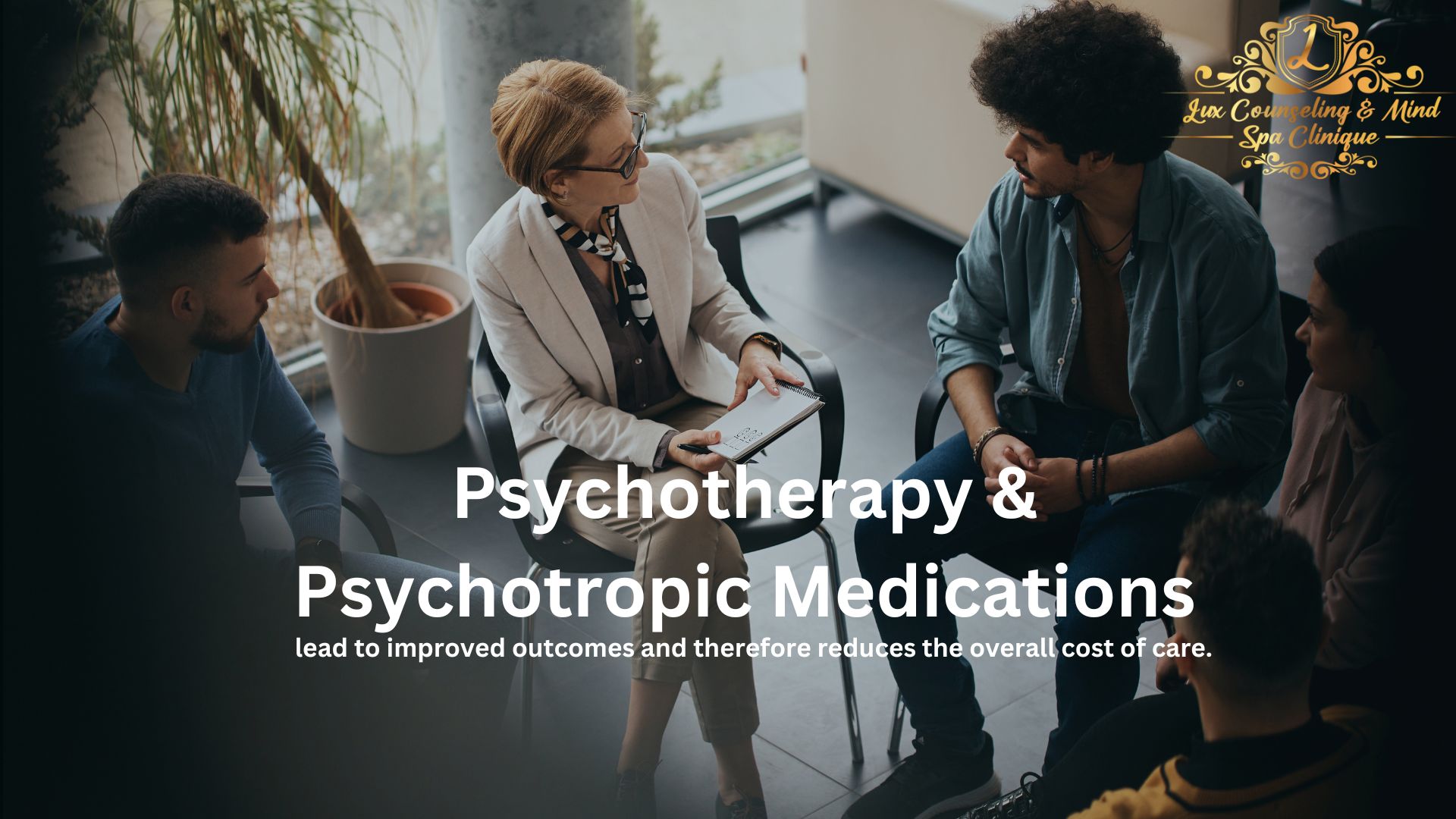Psychotherapy & Psychotropic Medications
This can lead to improved outcomes and therefore reduces the overall cost of care.
Combining psychotropic medications and psychotherapy is a common approach to treating mental health conditions. Research has shown that when these two interventions are combined, patients experience better outcomes than if they only use one of the treatments. This is likely because medications help to reduce symptoms associated with mental health issues. At the same time, therapy provides people with the tools and resources needed to cope with their condition more effectively over time.
When considering combining psychotropic medications and psychotherapy, it’s important to understand that each treatment can affect a person’s individual needs differently. For example, some medications may be more effective for certain types of mental illness than others.
Additionally, some therapies may be more beneficial for individuals who have different coping styles or personalities. It’s important for people to discuss their options with their mental health care provider in order to determine the best course of action.
In addition to considering individual needs, it’s also important for people to remember that combining psychotropic medications and psychotherapy can be a slow process. People should expect that they may need to adjust dosages, types of medication, or therapies as time goes on in order to find the most effective treatment plan.
It’s important for individuals using both treatments at once to adhere strictly to their doctor’s instructions and report any side effects that they experience so that adjustments can be made if needed.
Combining psychotropic medications and psychotherapy can be a great way to treat mental health issues. By understanding individual needs, sticking to instructions, and making adjustments as needed, people can make the most of their treatments and experience positive outcomes.
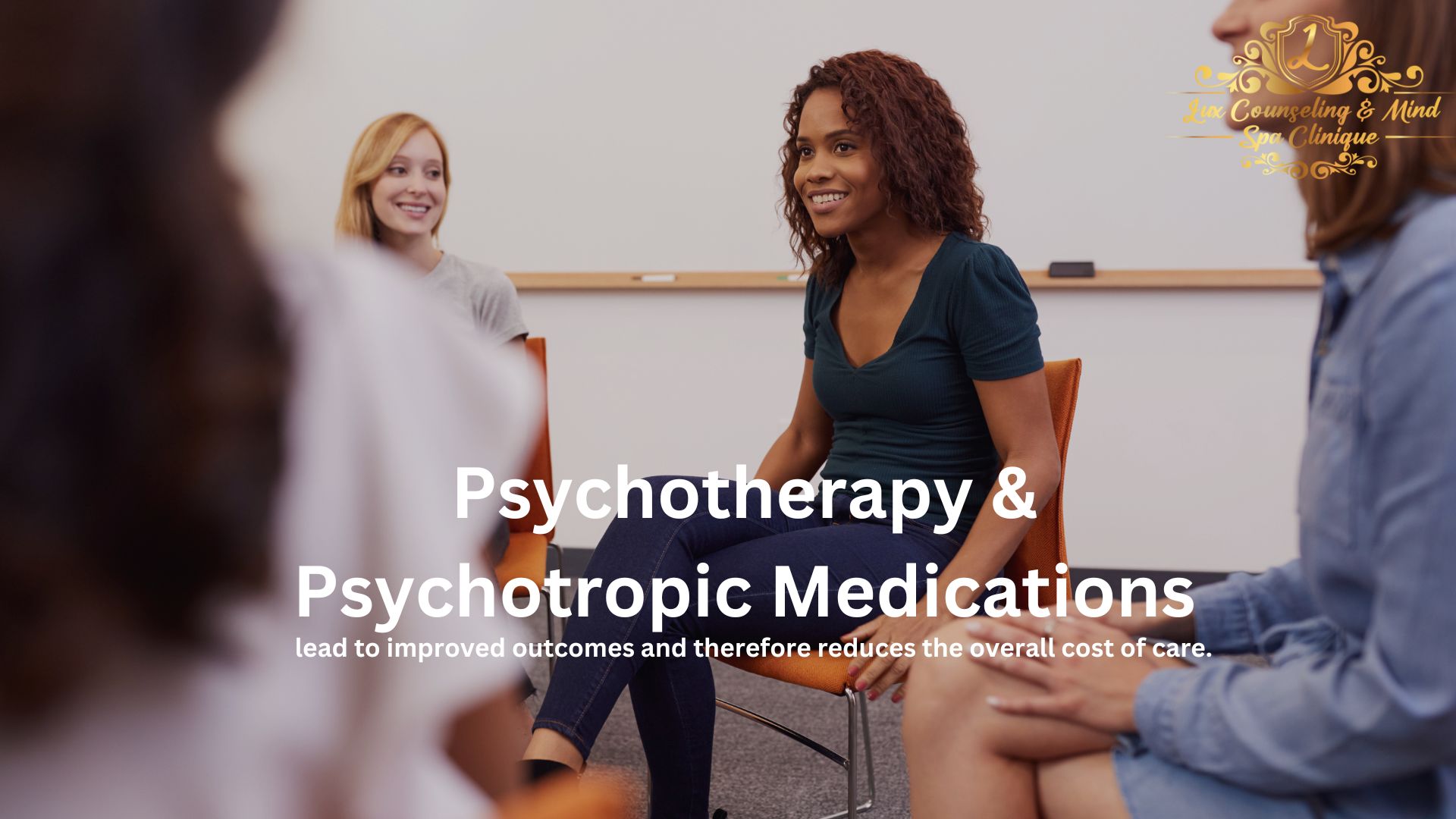

What is Psychotherapy?
Psychotherapy is a form of mental health treatment that can help people make positive life changes. It involves talking to a trained mental health professional about personal issues to better understand and manage them.
Through psychotherapy, a person can gain valuable insight into how they think, act, and learn new skills for managing difficult emotions or situations. In this way, psychotherapy can be an important part of improving mental health and overall well-being.
Psychotherapy often includes cognitive-behavioral therapy (CBT), which helps people identify unhelpful thought patterns and replace them with more adaptive ones; interpersonal therapy, which focuses on understanding relationships; or humanistic approaches, which focus on self-exploration and growth.
While different types of psychotherapy have different approaches, they all share the goal of helping people become more fulfilled and content in their lives. Although individual results may vary, psychotherapy is generally considered a safe and effective treatment for mental health issues.
Discussing any concerns or questions about the process with a mental health professional before starting therapy can be beneficial. With the right support and guidance, psychotherapy can help individuals gain insight into their behaviors, thought patterns, and emotions to lead more fulfilling lives.


What are Psychotropic Medications?
Psychotropic medications, also known as psychotherapeutic or psychiatric drugs, are a class of drugs used to treat mental disorders. Psychotropic medications influence the action of certain chemicals in the brain and other parts of the nervous system.
Psychotropic medications can also help reduce symptoms such as anxiety, depression, insomnia, mood swings, and any other mental health issues that may arise. While these medications effectively treat mental health conditions, they can have side effects, including nausea, headache, drowsiness, and dizziness.
It is important to talk to your doctor before taking any psychotropic medication and discuss all potential associated risks. Doing so can ensure you get the best results from your treatment plan while minimizing any unwanted side effects.
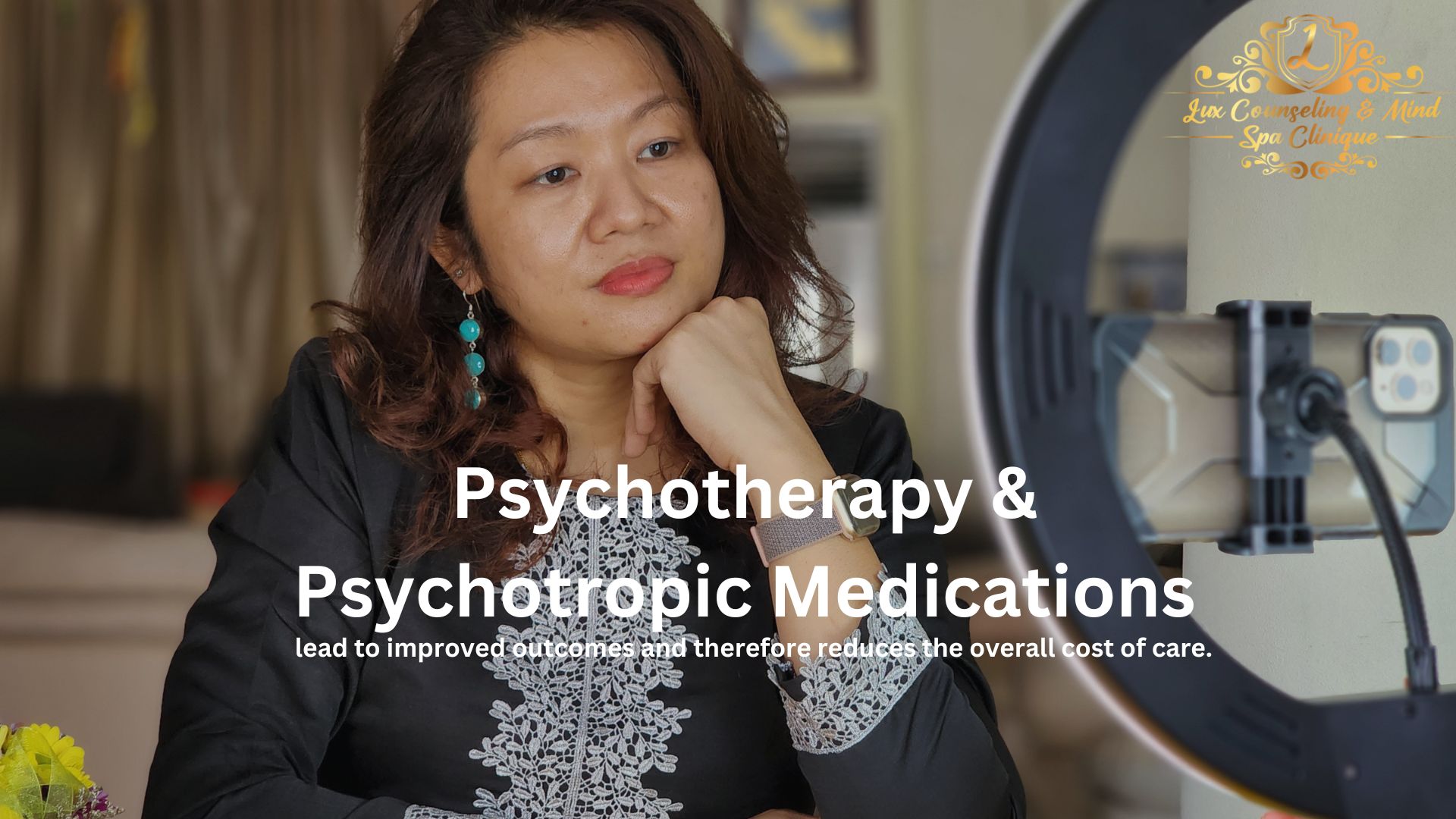

How are Psychotropic Medications Beneficial?
Psychotropic medications, such as antidepressants, antipsychotics, and mood stabilizers, can benefit people struggling with mental health issues. These medications help balance a person’s brain chemistry, reducing symptoms like depression, anxiety, bipolar disorder, schizophrenia, and more.
They also provide symptom relief while the person works on other aspects of their treatment plan (e.g., therapy). In some cases, psychotropic medications may even prevent further episodes or hospitalization due to mental health crises.
Many individuals report feeling calmer and better at coping with stressors when taking these medications. When used with evidence-based therapies such as cognitive behavioral therapy (CBT) and interpersonal therapy (IPT), psychotropic medications can be a powerful tool in helping people manage their mental health conditions and live fuller, more meaningful lives.
However, there are potential risks associated with using psychotropic medications that must be considered. These may include side effects such as weight gain or changes in appetite, sleep disturbances, decreased libido, and fatigue.
It is important to discuss any concerns you have about these effects with your doctor/psychiatrist before beginning treatment with psychotropic medication. Additionally, taking the medication as prescribed is essential to be effective; changes should not be made without consulting a healthcare provider first.
When used responsibly and combined with other evidence-based treatments (e.g., therapy), psychotropic medications can be a beneficial part of managing mental health issues. For more information about the use of psychotropic medications, consult with your doctor or psychiatrist.
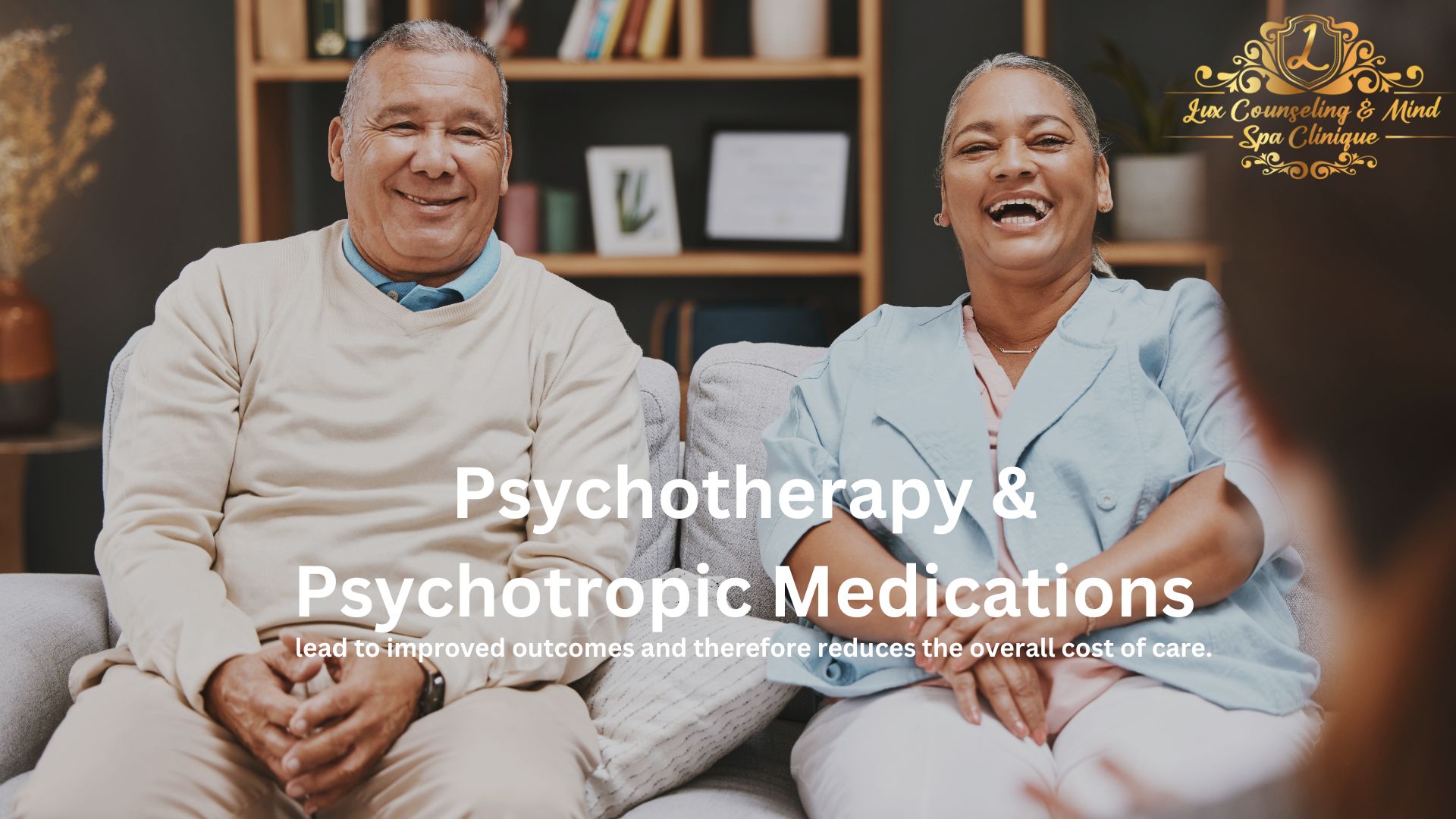

Combining Psychotropic Medications & Psychotherapy
Combining psychotropic medications and psychotherapy is a clinically recommended treatment option for various mental health conditions. This approach has been shown to be more effective than either medication or therapy alone in relieving symptoms, restoring normal functioning, and preventing relapse. Studies suggest that combining both treatments can reduce the overall cost of care by leading to improved outcomes in a shorter time.
When combined, these two modalities have been found to provide a comprehensive view of psychological issues and a greater range of strategies to tackle them. The combination also allows practitioners to combine medication adjustments with therapeutic techniques such as cognitive behavioral therapy (CBT). Hence, they can better address the underlying emotional causes of symptoms.
Psychotherapy, in combination with psychotropic medications, can also help reduce the risk of long-term side effects. For example, research has shown that combining CBT with medication is more effective at relieving symptoms of depression than medication alone. This helps to reduce the need for frequent and potentially expensive adjustments in dosages or types of medications.
Combining psychotropic medications and psychotherapy offers an effective treatment option that improves outcomes and reduces the overall cost of care. The two modalities together provide a comprehensive view of psychological issues, enabling practitioners to address underlying emotional causes while minimizing the potential for long-term side effects. Therefore, this approach is highly recommended for treating mental health conditions.
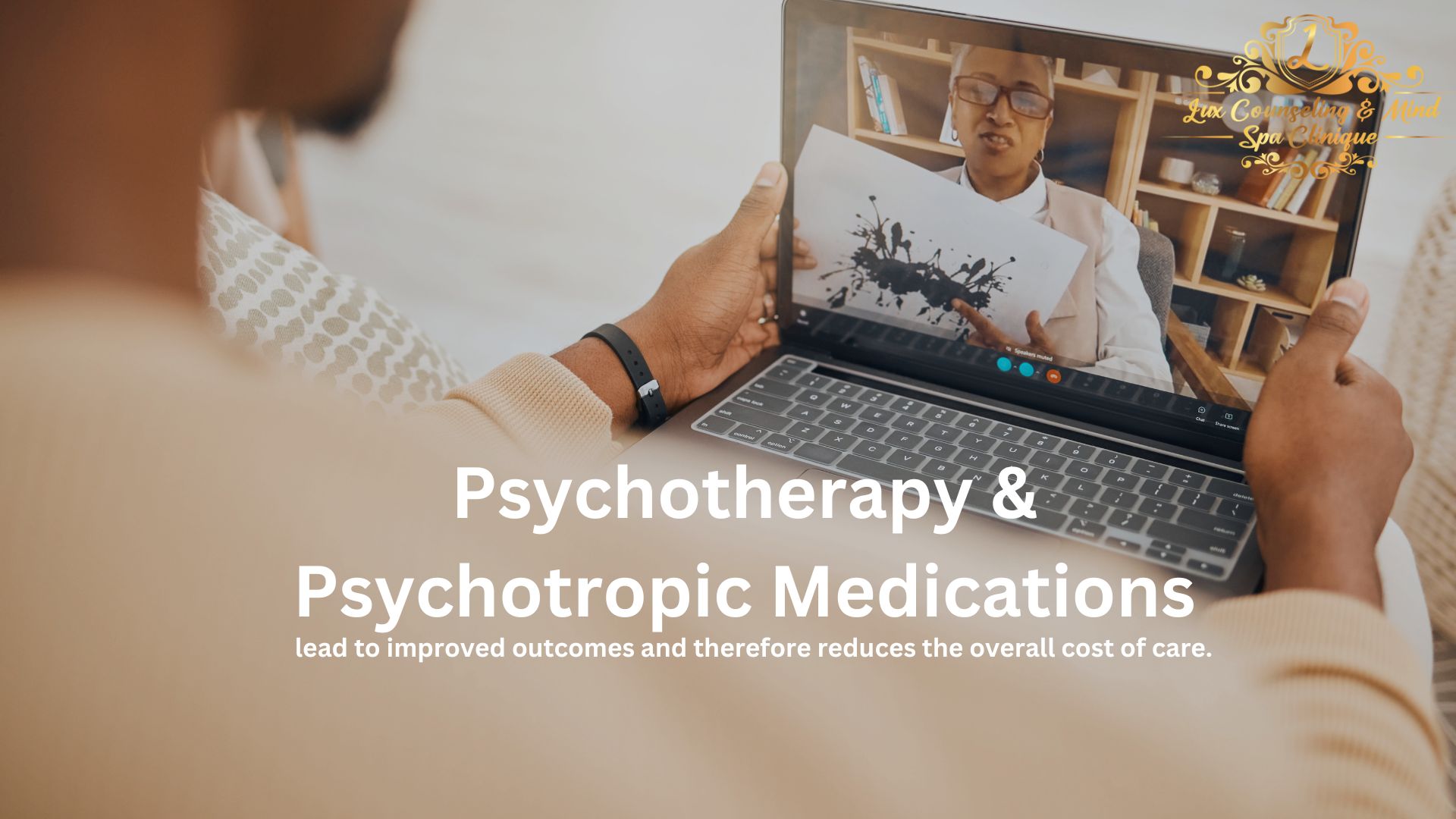

Reducing the Overall Cost of Care
Combining psychotropic medications and psychotherapy can generally reduce the overall cost of care due to increased efficiencies in treatment. Medication in combination with psychotherapy has been shown to improve outcomes for individuals with mental disorders, leading to improved functioning and fewer costly hospitalizations or crisis interventions.
Additionally, combining treatments may reduce symptom severity and fewer visits to a therapist, which can lower costs associated with traditional talk therapy. Furthermore, adequately managed medications can be more effective than therapy at addressing symptoms such as depression or anxiety.
Using both treatments together often results in better overall functioning and improved quality of life while reducing long-term medical costs. Utilizing an integrated approach that combines psychotropic medications and talk therapy can ultimately result in more cost-effective treatments for individuals with mental health disorders.
Combining psychotropic medications and psychotherapy effectively reduces the overall cost of care while maintaining high levels of quality treatment. By utilizing a holistic, integrated approach that includes both medication and therapy, individuals can achieve better outcomes and improved functioning over the long term while reducing medical costs associated with traditional talk therapy.
Furthermore, it is important to ensure that patients are properly monitored and managed while using a combination of treatments to increase the effectiveness of their care. Combining psychotropic medications and talk therapy is an excellent way to improve outcomes while decreasing costs associated with mental illness.
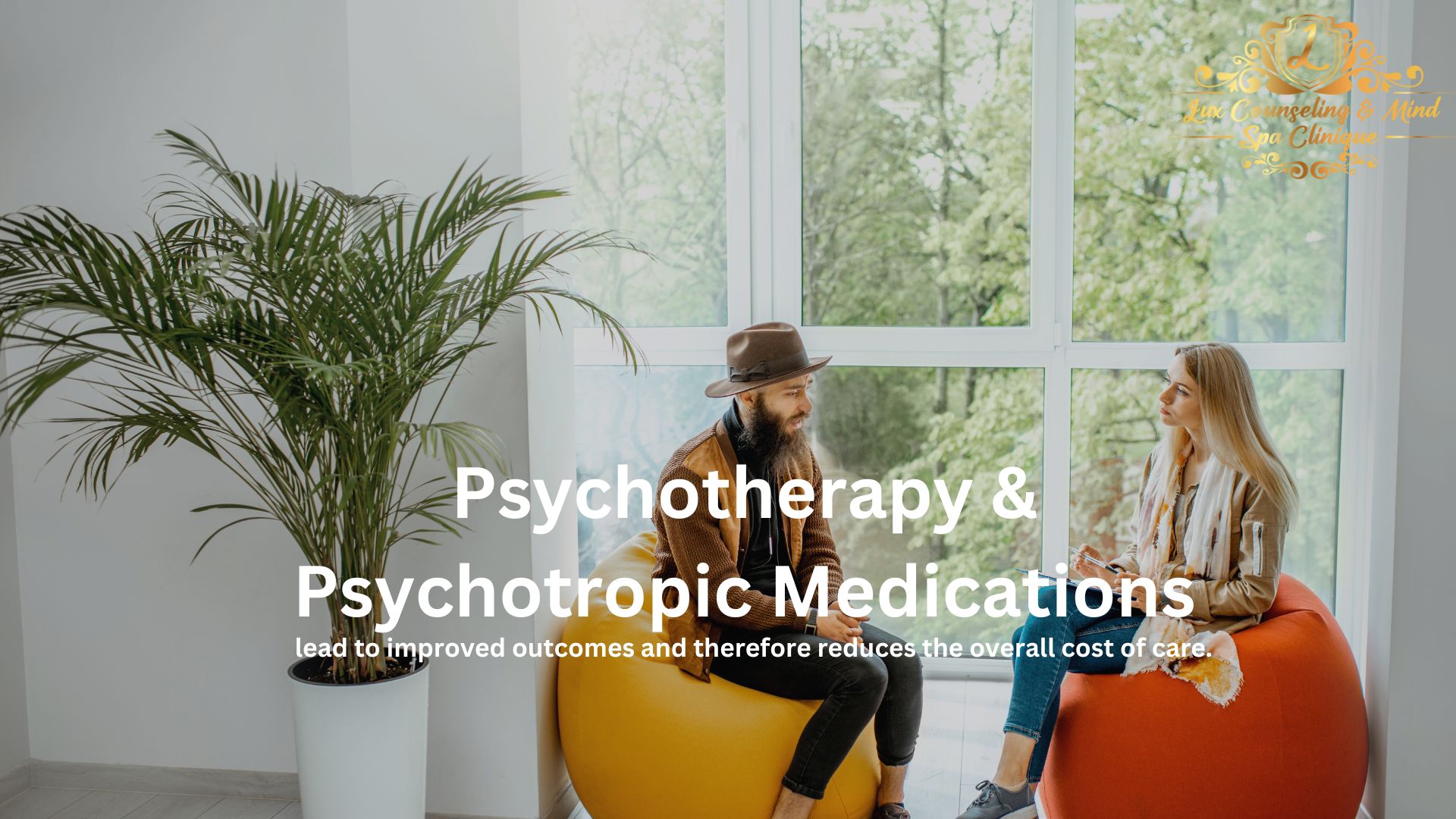

Positive Outcomes of Psychotherapy & Medication Therapy
Psychotherapy and medication therapy are highly effective treatments for mental health conditions such as depression, anxiety, and addiction. Both therapies have been shown to reduce symptoms, improve functioning, and even prevent relapse.
Regarding psychotherapy, the goals are often centered around understanding and changing negative thoughts and behaviors. Through this process, individuals can gain insight into their emotions, learn how to manage distress healthily, identify mental illness triggers, develop coping skills for stress management, and build resilience against future challenges. With these tools in hand, they can make positive changes that lead to improved well-being.
Medication therapy is an important part of the treatment plan for many mental health conditions. Medication can be a necessary component of recovery for some individuals with severe symptoms.
Medication helps reduce symptoms and relieve distress while also providing stability for individuals to focus on other areas of therapy, such as problem-solving and developing coping skills.
When psychotherapy and medication therapy are used together, the outcomes can be even more successful than when either treatment is used alone. Studies have shown that combining therapies leads to improved quality of life, better functioning in daily life, decreased symptoms, increased satisfaction with life overall, and lower levels of relapse or recurrence.
It is important for individuals seeking mental health treatment to consider both psychotherapy and medication therapy if appropriate. Individuals can make meaningful progress in their mental health recovery with the right combination of treatments.
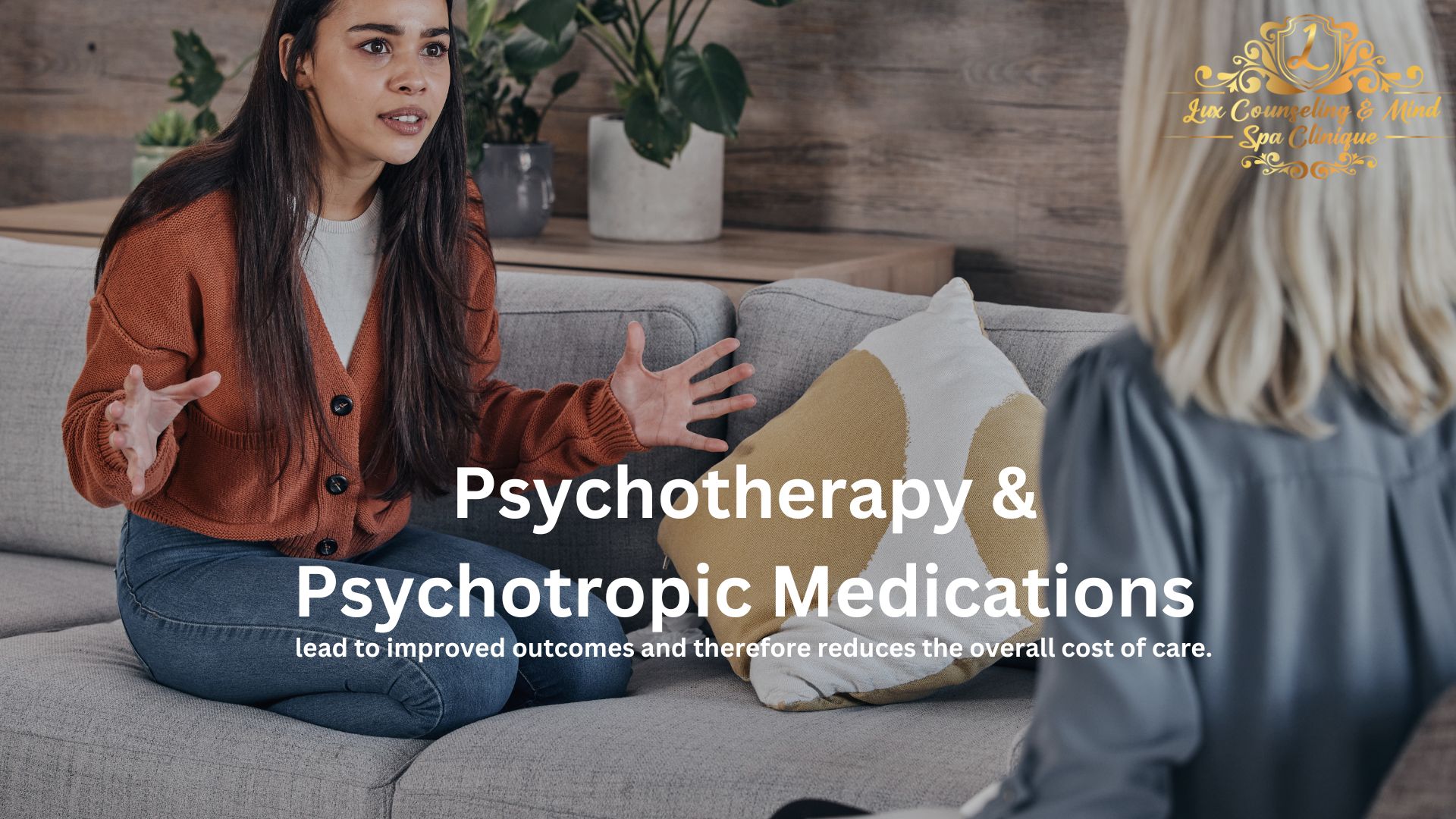

When optimizing the effectiveness of psychotherapy and medication therapy, there are a few key considerations. Choosing a qualified provider knowledgeable about evidence-based treatments for mental health conditions is essential.
It can also be helpful to work with a team of professionals, including a therapist and psychiatrist or another prescribing medical professional for integrated care.
Individuals should ensure they actively engage in the treatment process by being open and honest with their providers and following through with any recommended interventions at home. With these steps, individuals can maximize the positive outcomes of psychotherapy and medication therapy.
By committing to psychotherapy and/or medication therapy, individuals can take an important step toward recovery from their mental health condition. With the right combination of treatments, they can make meaningful progress in their mental health journey and experience the life-altering benefits of improved well-being.


